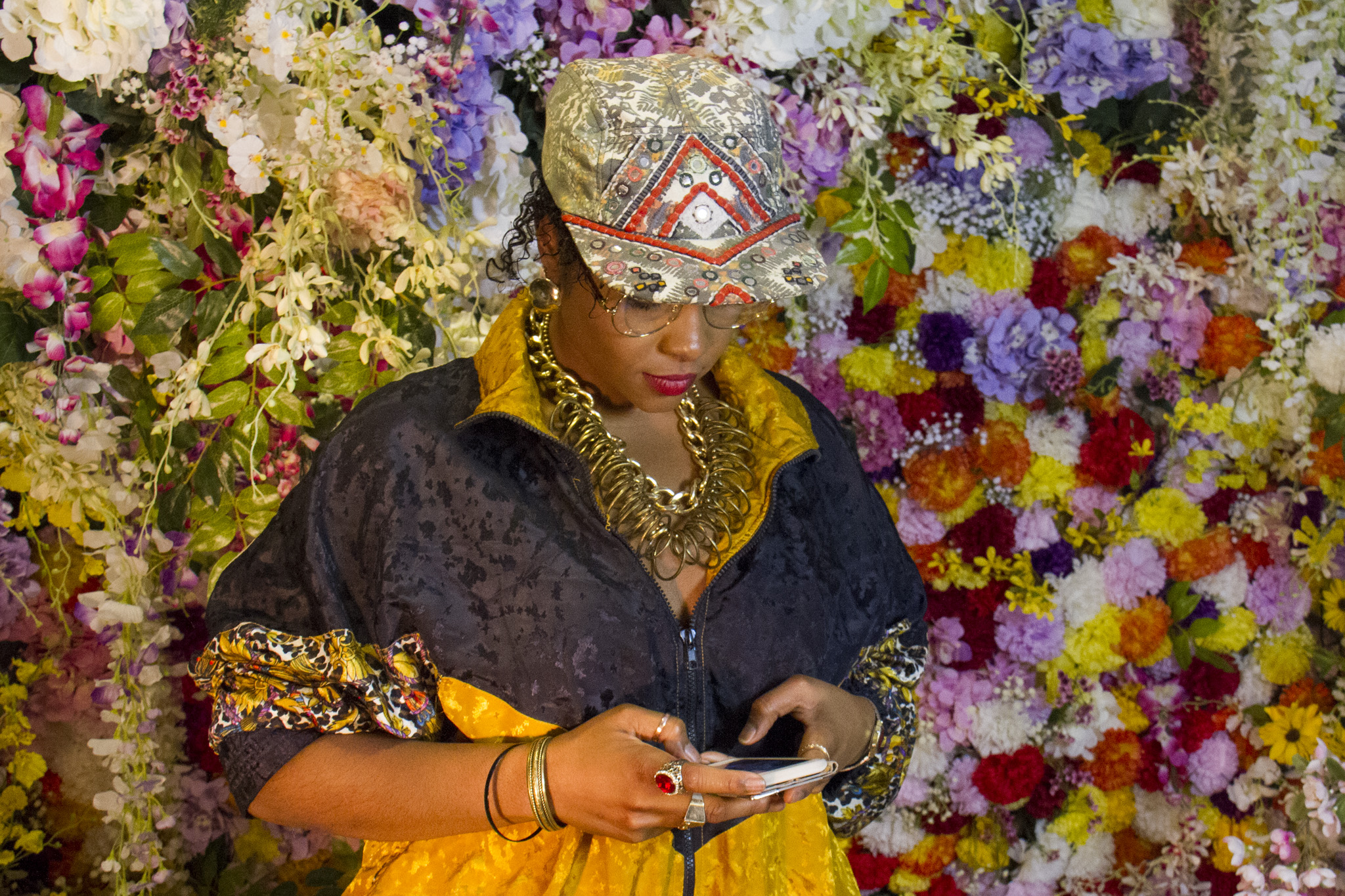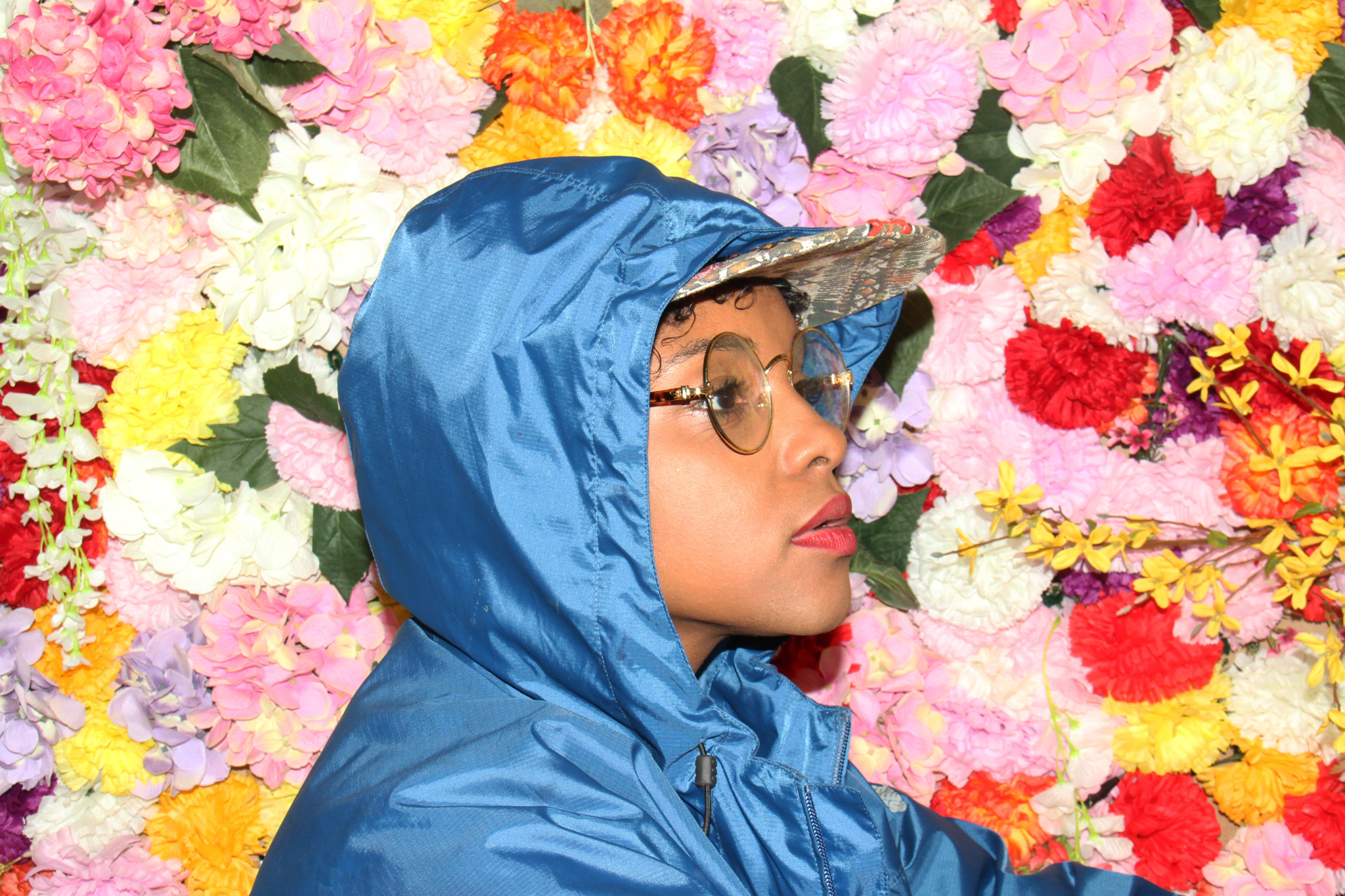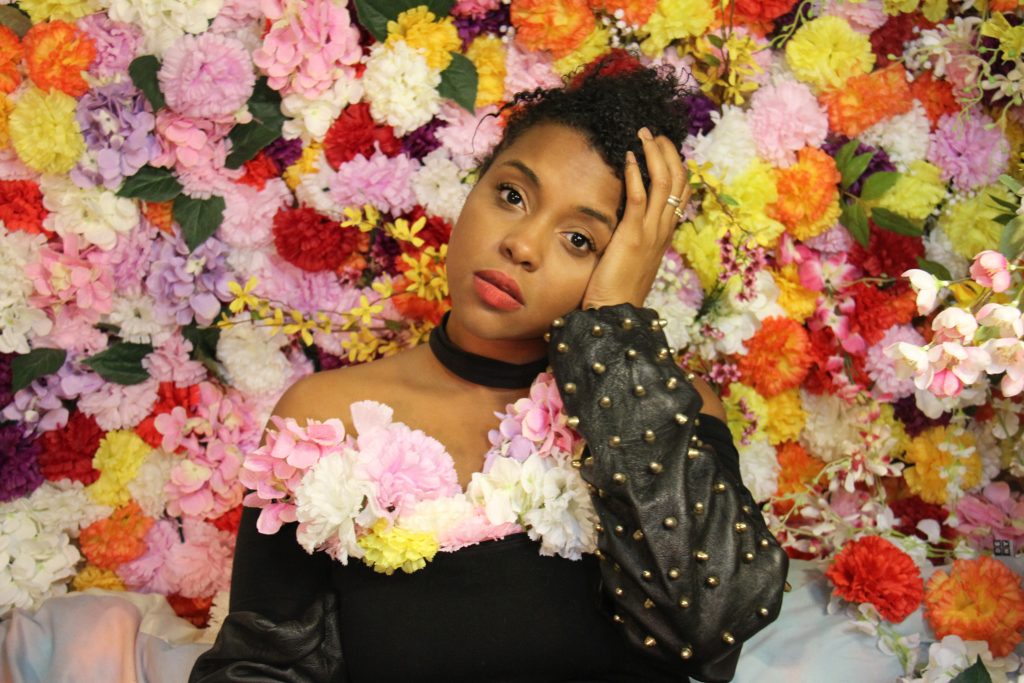Latasha Alcindor wants to save Brooklyn. That is, she wants to save the old Brooklyn, the one she remembers from growing up in Flatbush: two for $5 bootleg tapes, egg-and-cheese sandwiches, and the Empire Roller Skating Center in Crown Heights. Now living in the borough’s Bedford-Stuyvesant neighborhood, the rapper and spoken word artist is trying to do it the only way she can – with hip-hop. Her recent album B(LA)K, released earlier this year, deals with surviving in the Brooklyn she knows today, where her neighbors and family are squeezed on one side by gentrification, and on the other side by the same economic pressure and violence she grew up with.
Though also rooted in the present, her new project Teen Night At Empire, her sixth release, glances back at the Brooklyn that raised her. It’s not about nostalgia, but about memory. Over the phone, she says it’s about “Remembering our experiences and understanding that our experiences are like gold for where we’re about to go in the future.” This isn’t a platitude; it’s a strategy for survival. The kind of experiences she’s talking about are laid out in the elegiac “Ol’ BK Soul,” featuring longtime friend Radamiz. In between rapped verses she sings liltingly about “seven-day candles at the corner of the park,” “Jordans and Cubans,” and “the feeling right after World Trade.” These are the things large and small that she wants people to remember. “I really believe we have to tell these experiences so that we can have some sort of museum left, like a mental museum of what we had,” she explains.

The Empire skating rink, and her memories of wild times at its legendary teen night, serve as a focus for her hip-hop historiography. The building is a storage space now, just another victim of gentrification, but its parties were personally formative for her. Teen Night occupies a liminal psychological space between the then and now, her reflections often superimposing the confident and free-spirited person she is today over the skating rink where she learned to be that person.
“Hip-hop for me has really been a form of medicine.”
Alcindor is Afro-Latina – she has Panamanian and Jamaican heritage on her father’s side and Puerto Rican and Haitian roots on her mother’s. She grew up speaking Spanish and hearing salsa and merengue alongside Shabba Ranks and Buju Banton at home. Meanwhile, she nourished a passionate love of hip-hop with her collection of Hot 97 mixtapes. “I was like the little kid in the corner with my headphones listening to hip-hop while my family was going crazy listening to whatever,” she recalls. Empire was where she could go to indulge that passion.
Her mother was strict and barely tolerated these excursions, which made them all the more precious. Empire, she says, “was my initial taste of freedom. I could go and listen to all the music that I wanted to hear, out loud, and I could dance and be free. It was a space where I didn’t have to be the nerd girl from Brooklyn anymore. I could be whatever I wanted to be.”
Fittingly for a project named after a skating rink, this release is more of a celebration compared to B(LA)K. Alcindor picks up the pace with hyperspeed rhymes over beats inspired by the New York rap she grew up on. It’s fun but bittersweet, partly because the place she remembers has changed so drastically and partly because her memories are marred by violence. The rink was freedom, but it was also danger. “It was a scary place as well. Kids used to get shot up there too,” she says. She lost her high school boyfriend to gun violence.
“Brooklyn is also love at the end of the day.”
Rapping has been a way of healing from the trauma of such experiences; it grew out of her spoken word and poetry. “I did it because it was the only thing that made me feel really good. I was only rapping because it made me feel like that deep sigh of relief, and now is when I’m realizing that hip-hop for me has really been a form of medicine,” she says. Her love of the art form shows most clearly in her performances. Live, she expresses the kind of pure joy in rhyme that can make you want to throw your hands up without having to be asked. She wants to share that love and healing with other people, since she believes it’s the only way to make a better future where she is.

Alcindor hopes that connecting with their shared history can help her fellow black and brown Brooklynites come together and find a way forward. She also expects it to help newcomers, like her two white roommates, whom she also loves, to understand and respect their neighbors and the history of the place where they have chosen to settle. She believes if there is any hope for Brooklyn’s legacy as a real community and “not just a bunch of scary condos” it lies in everyone transcending fear and starting to communicate. It lies in love. Brooklyn is and has been a lot of things, good and bad, but “Brooklyn is also love at the end of the day,” she says.
Stream Latasha Alcindor’s “Revoke Thee” on Nuevo Noise, Remezcla and Spotify’s collaborative playlist. Read more about our favorite artists featured on Nuevo Noise here.







